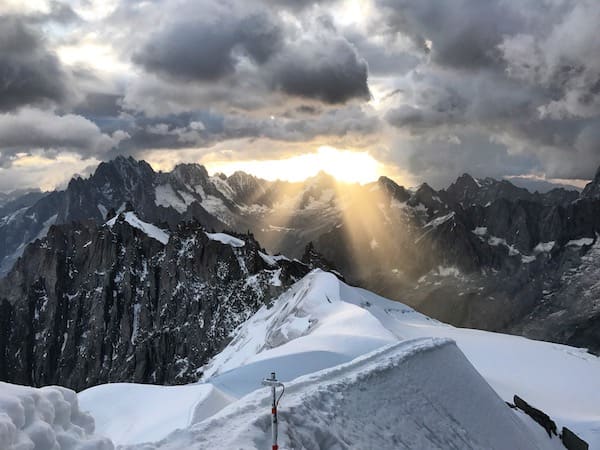
31 Aug Climbing the Mont Blanc: what you need to know
We receive many requests from people interested in climbing the Mont Blanc, the highest peak in the European Alps. This is part one of two blogs with some helpful information for those people who are interested in climbing the Mont Blanc.
How do you know if you are ready for the Mont Blanc challenge?
Requests that we receive are from guests who have trained and who are ready for this adventure are a delight. We are flattered that they have decided take on this challenge with us. Other requests, and there are many of these, are from those who are interested in the challenge but who need a little guidance in how to prepare. These requests require us to ask more questions and give more information to help paint a clear picture of what is involved.
What about previous climbing experience?
Those with previous mountain climbing experience, especially past Swisskisafari guests, have acquired a degree of time in the mountains which helps them understand this particular Alpine environment. These are the kind of guests we welcome more quickly to climb the Mont Blanc. The time they have already spent with us has given us a degree of understanding of their personal level. Because they have spent time with our guides they understand the risks and preparation involved. Other requests are from guests who we do not know yet. These requests require a little more time to gather the information necessary.
Crucially, it is important to have your eyes wide open when attempting to summit Mont Blanc, which is why we aim to be realistic with everyone about what it takes.
Our must-know Mont Blanc facts
1. Climbing the Mont Blanc is alpinism not hiking. You need the correct equipment, such as crampons and ice axes, and skill at using these tools.
2. Summiting Mont Blanc is a long trek, taking 6-7 hours to climb and 5 or more hours to descend, It requires a few days preparation.
3. Exertion at altitude requires an above-average level of fitness. Many guides use the benchmark of being fit enough to run a marathon, but we find that often guests who are marathon runners do not make it to the summit. Training to climb the Mont Blanc requires training that involves climbing mountains.
4. Altitude is an important factor. The Mont Blanc summit is 4,810 meters high, and altitude sickness can be experienced from 2,500 meters upwards. There is no way to predict if or when you will suffer from this, even if you are exceptionally fit. Time spent at altitude before you summit is 100% necessary. Sleeping at altitude before you climb the Mont Blanc is recommended.
In our next blog has more details on how to climb the Mont Blanc and if you are interested in reading more you can find it here: https://swisskisafari.com/how-to-climb-mont-blanc-the-process/
If you think you are ready for the ultimate challenge, climbing the Mont Blanc, give us a call.
Warm regards from the mountains,
Danielle


